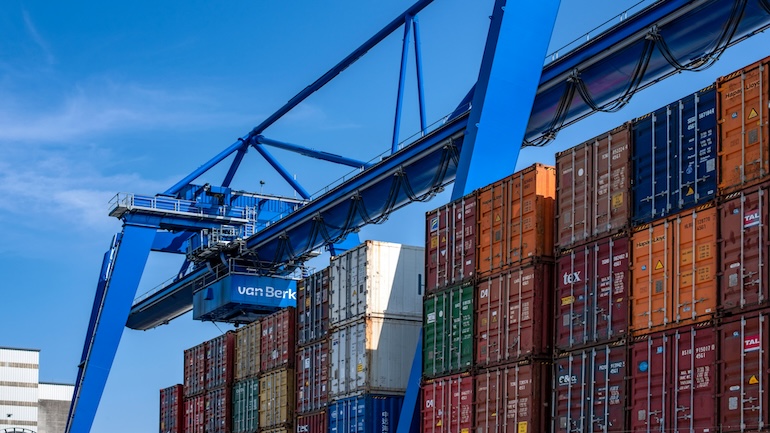
NVIDIA CEO Jensen Huang has visited China to meet with government officials, a surprising move in light of the new restrictions that the chipmaker faces from the Trump administration’s efforts to restrict semiconductor sales to China.
Huang also met with NVIDIA clients, including a meeting with DeepSeek founder Liang Wenfeng in Beijing, according to the Financial Times. A photo published by Chinese state media showed the NVIDIA leader greeted by an eager group of representatives with cameras.
According to Chinese state broadcaster CCTV, Huang said that China was “a very important market for Nvidia” and that he hoped the company could “continue co-operating” with China. NVIDIA would produce products that comply with regulations, he said.
NVIDIA has not officially confirmed the Chinese trip, only tersely noting to the New York Times on Thursday that “We regularly meet with government leaders to discuss our company’s products and technology.”
The visit is a remarkable moment in an already tumultuous period for the artificial intelligence (AI) sector’s leading semiconductor vendor. As recently as early April, NVIDIA and other chipmakers expected that chips would be exempt from tariffs levied by President Donald Trump.
This past Sunday came a major reversal: Trump posted on his social media platform that “NOBODY is getting ‘off the hook’ for the unfair Trade Balances, and Non Monetary Tariff Barriers, that other Countries have used against us, especially not China which, by far, treats us the worst!”
In response, NVIDIA on Monday made an announcement that appeared designed to mollify Trump’s concerns. The company, whose supply chain is inextricably global, touted a major investment in US-based production. Its plans include two supercomputer manufacturing facilities in Texas, a partnerships with firms in Arizona for packing and testing, and using TSMC’s U.S. plant to fabricate some of its next-gen Blackwell chips.
If that splashy announcement was intended to curry favor with the Trump administration, its success was limited. On Tuesday, NVIDIA said the U.S. government had informed that the company would need a license to export its H20 chips to China. The H20 is the most powerful chip NVIDIA has been allowed to export to China, based on export controls imposed by the Biden administration. The government filing said that “the license requirement addresses the risk that the covered products [H20 chips] may be used in, or diverted to, a supercomputer in China.”
NVIDIA said that it anticipates that the new license requirement would cost it $5.5 billion in its first quarter. AMD and Intel have also reported possible losses based on the license requirement.
Additionally, NVIDIA now faces a Congressional investigation: On Wednesday, the House Select Committee on the Chinese Communist Party launched an investigation in NVIDIA’s semiconductor sales in Asia. A press release from the committee stated: “DeepSeek isn’t just another AI app — it’s a weapon in the Chinese Communist Party’s arsenal, designed to spy on Americans, steal our technology, and subvert U.S. law,” said Chairman John Moolenaar (R-MI). “We now know this tool exploited U.S. AI models and reportedly used advanced Nvidia chips that should never have ended up in CCP hands. That’s why we’re sending a letter to Nvidia to demand answers.”
The committee sent a formal letter to NVIDIA requesting a list of its customers in Asian countries that have purchased more than 499 AI-related chips. It also requested “any communications and correspondence between NVIDIA and DeepSeek.”
As events transpire rapidly, industry experts noted that the possible effect on NVIDIA is unclear.
“While the extent of the [export] restrictions will only be clear once the U.S. publishes the details, NVIDIA’s disclosure indicates the restrictions are much more severe than they were before,” said Gil Luria, managing director, head of Technology Research at D.A. Davidson & Co. His firm’s research report opined that, in light of the new export controls, NVIDIA may now choose not to follow through on its pledge to invest in U.S.-based production, and if it does, “we believe it will erode long-term margins.”
Richard Gordon, VP & practice lead, Semiconductors, The Futurum Group, said that “AMD and Nvidia will no doubt apply for export licenses but they will likely be denied given that the intention is to limit Chinese access to leading edge, especially AI-related tech.”
However, “These chips will likely find their way into China via intermediaries anyway, albeit it’s logistically more challenging,” he said. “China will continue to develop its domestic [AI] capabilities but the U.S. actions will slow down the rate of progress, which is the point.”

